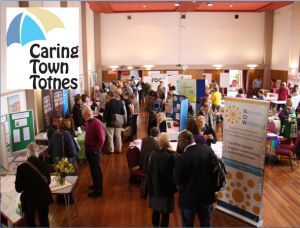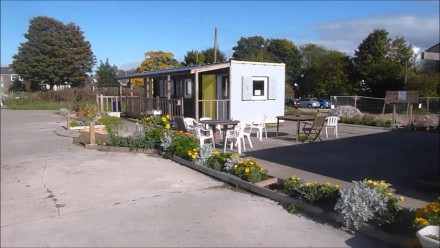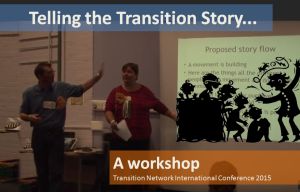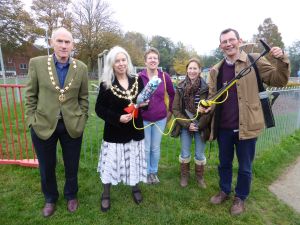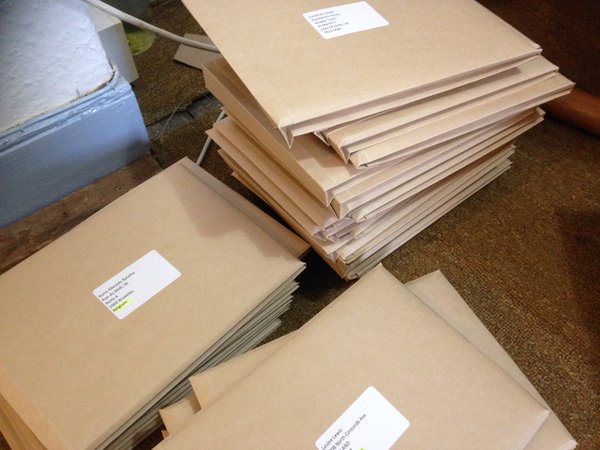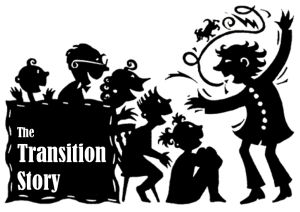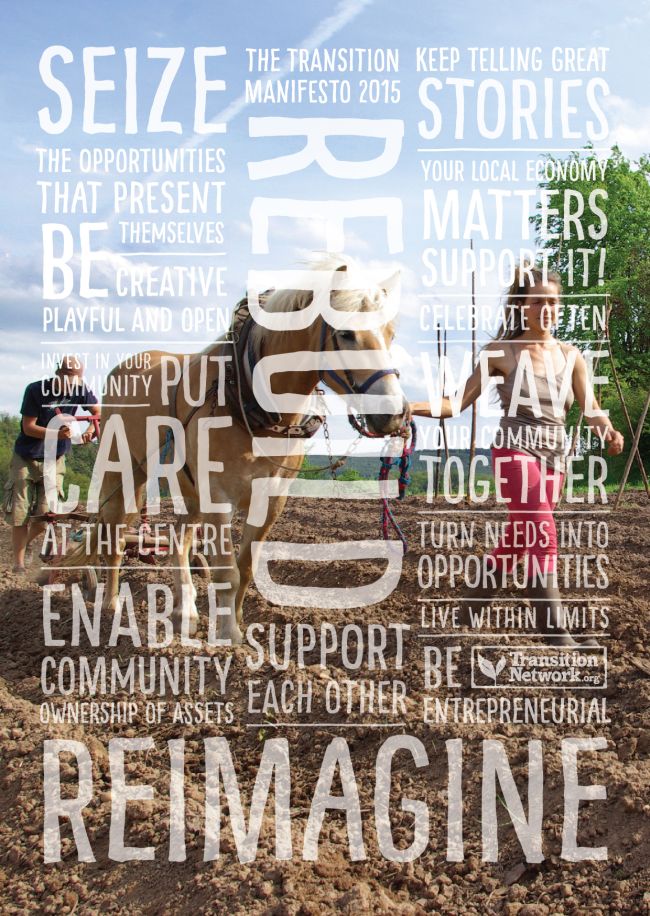12 Nov 2015
John Thackara reviews ’21 Stories of Transition’
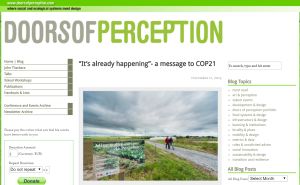
With fewer than three weeks to go until the start of COP21, the UN’s climate negotiations in Paris, a question arises: Will this gathering make the slightest difference? For Rob Hopkins, editor of a new book from Transition Network, 21 Stories of Transition, answer is yes – but a different kind of yes than the global leaders meeting in Paris probably have in mind. He wants decision makers to reimagine their role as being ‘community enablers’ whose task is to deepen, connect and extend initiatives that are already out there. A huge upsurge in transformative local projects is evident around the world, argues Hopkins; the priority is not for global leaders to start things off from scratch – still less, to tell people what to do.
Although Hopkins says we should not expect a ‘Great Change Moment’ at COP21, he does compare our situation today to East Germany before the Berlin Wall came down. Right up until the last minute, Hopkins reminds us, that country appeared to be robust, powerful and permanent. In reality, as its sudden collapse testified, it was ‘holed below the waterline – undermined by the number of young people defecting to the West, corruption, rigged elections, and much more’.
Today, too, says Hopkins, “Something brilliant and historic is already underway. Our message to the Obamas, Camerons and Merkels of this world is that it’s already happening”
Caring Town Totnes, in England, for example, although unique to its context – is relevant for thousands of other communities.
This collaboration of more than 70 local public, voluntary and private health and social care providers have a shared objective: to ensure that every resident of area, and especially the most vulnerable people, know where to access support and have a range of affordable options to meet their needs.
The thinking is that health and he work well being are not best thought of as a something ‘delivered’, like a pizza, by a distant supplier. Community-based health and prevention emerge, instead, from a collaborative network of professional and voluntary groups and organisations. The social design task is to create the conditions in which such diverse actors camay collaborate.
This shift of emphasis away from biomedical ‘factories’ such a big hospitals is exemplified by Greenslate Community Farm.
This once derelict rural cluster is being transformed into a multi-acitivity community hub. Funded by Public Health England, it provides a meeting place for people recovering from drug and alcohol addictions and others special needs.
Therapeutic activities at the farm cross-subsidise growing activities. Eighteen acres of former barley field are now a regenerating woodland that is being coppiced and replanted. Old farm buildings have been repurposed as a schoolroom and shops. A community energy company, a vegan catering wagon and a charcoal maker use the farm as their base. Future plans include a new straw bale building to house a professional kitchen, a community bakery, a cafe, a dairy and offices.
A pixellated geography of farming is also emerging alongside this diversification of farm activities. In Liege, in Belgium, an archepelago local food enterprises are being run, connectedly, as ‘learning network of microfarms’ in a joined-up ‘Food Belt’ around the city.

In a city with a long heritage of industry and steel production, much of the land within the city is too contaminated for growing food, so the idea is to reconnect the city with its peri-urban land, and to use the revitalisation of local food production to reimagine the local economy. The vision is for Liège to be surrounded by microfarms of 3-4 hectares (8-10 acres), creating many jobs. In London, the Crystal Palace Patchwork Farm is based on similar principles.
Energy and Money
The two invisible but all-embracing backstories of these new times – energy, and debt – are also being tackled by small projects with the potential to make a huge difference as they connect, help each other, and multiply.
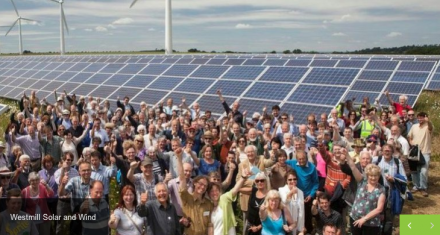
Community energy projects, especially, enable communities can start to take back control of their economy, and their energy supply. In the UK alone, over 5,000 community groups have set up community energy schemes since 2008 – and the start-up rate is increasing. In Germany over 50 percent of new renewable energy installations are in community ownership. Community Energy England reckons the energy landscape could be transformed – “from the Big 6 to the Big 60,000‘ – if the regulatory system were to be opened up.
A simple business incentive explains the shift. The priority for a community energy focuses is to cover operating costs rather than maximise profits for distant shareholders. A community energy enterprise therefore ploughs far more income back into the local economy than large renewable energy developers. This ‘multiplier effect’ also drives the spread of local money systems.

Money spent with local businesses circulates more times and leads to greater benefits for the local economy. The Brixton Pound, for example, calls itself “the money that sticks to Brixton”. The Bristol Pound, launched in 2012 represents a step up in scale for a local currency. Bristol’s Mayor takes his full salary in Bristol Pounds, and local people can pay their local taxes, pay their energy bills, and buy tickets on the buses and trains using the local notes.
Although most of the projects in 21 Stories are stand-alone initiatives, one town-wide programme stands out. Ungersheim, a village in the Alsace region of France, has become a Fair Trade town; launched a local currency, ‘Le Radis’ (the radish); mapped the biodiversity of the area in an ‘Atlas of Biodiversity’; returned a former waste heap, created by mining, to nature; installed a120m2 solar thermal installation at the swimming pool; changed all public lighting in the village to low energy bulbs, leading to a 40% reduction in energy use; and completely banned all pesticides and herbicides in public areas; the local primary school now serves 100% organic meals – much of them sourced locally;
Jean-Claude Mensch, Mayor of Ungersheim, recognised in the Transition approach “a different, inclusive and fraternal economic model”.
Originally posted at John’s Doors of Perception blog.
